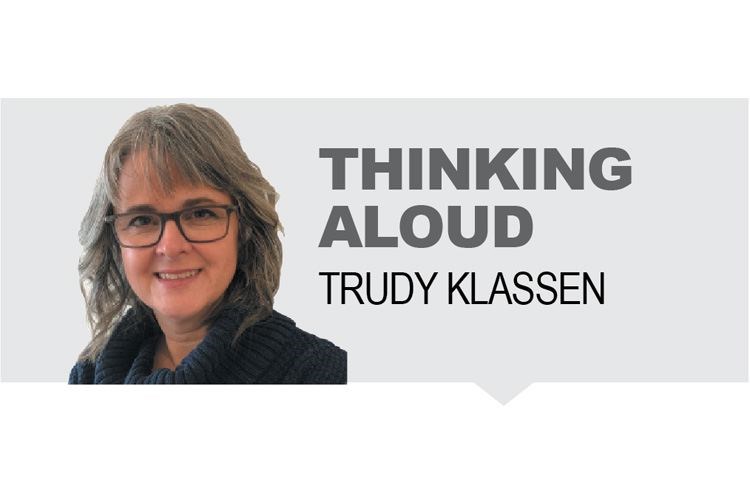Currently, the interests of small communities across the north, like Fort St. James and Mackenzie, and the people that live here, seem to be ignored. Our northern communities are in decline.
What can we do to change this? Perhaps we could get the attention of those living on the other side of Hope if we were as important as the mountain cariboo?
Perhaps if we added another species to the Species at Risk Act?
How about we add a new endangered species - rural and remote Canadians.
The pitch could be:
"All across rural and remote B.C., across Canada, rural and remote Canadians are in decline. Rural and Remote Canadians are a diverse group of humans who live peaceably together in the north. Despite being under-represented in the towers of power, they create a disproportionate part of wealth in Canada. This endangered species is vital to our survival because they grow, manage, harvest, and extract, the raw materials and food we need to survive. Losing rural and remote Canadians would mean the loss of human connection with the land.They are the guardians of our natural habitat. Losing rural and remote Canadians will mean a vital piece of the economy, cultuel, heritage and knowledge of Canada would be lost. We need to take steps now to avoid this extinction!"
Maybe then we would have their attention?
Perhaps we could even get a sympathetic Hollywood involved to help us. They have already produced a movie that showcases some of the problems we have. I have teens, so occasionally I watch movies I would never choose. One of them, the sci-fi movie Mortal Engines, has massive cities on wheels travelling about the country, scavenging the vast near-empty wilderness, gobbling up smaller cities for their resources.
What does this resemble? Area mills getting the raw logs from the Mackenzie timber supply? The Lower mainland consuming the north? The east consuming the west of Canada?
Until that happens, we ordinary folk have a choice to make: we can complain about the inequity, we can increase the divide between rural and big-urban Canada by becoming angry or we can begin to tear down those walls. But first, we need to tear down the walls we ourselves build in our own communities.
My husband and I lived in Mackenzie but we moved to Prince George because, as loggers, we just didn't fit into a mill town. When Mount Milligan ,ine was built, there was lots of complaining about the mining trucks wrecking the forestry roads. Now my husband hauls logs in the Prince George area and the log haulers are tempted to grumble about the pipeline crews increasing the traffic. This division is a problem.
When I first heard about the rally in Mackenzie, I thought it was oriented toward union workers. Since I am not a union member, I shrugged and figured it wasn't for me. I was wrong. You, me, all of us - blue-collar, white collar, union, non-union, farmer, rancher, business owners, self-employed, unemployed, contractor, sub-contractor, logger, mill worker, government employee, health care worker, or teacher - we are all impacted.
If you live in the north, we need to know that we are all in this together. We need to start respecting, defending and fighting for each other, to survive as small communities and cities. If we don't, the Lower Mainland, and eventually Eastern Canada will swallow us, one gulp at a time.
Then what? Who will live in the North? Who will look out for the vast uninhabited areas of our province? We are the stewards of the land, we who live in the north, regardless of heritage or colour of our skin or profession, we must learn to respect each other, defend each other and work together.
We need to find ways to make rural and remote communities thrive again.
I am no Luddite. I know we need to continually create efficiencies in order to remain competitive. I also know that we have policies and regulations that have not kept pace with our changing technology and economic conditions, that serve no useful purpose and harm small communities.
Our elected government and bureaucrats, who know how the systems work and are most familiar of how we can change things, need to do what every small business owner does all the time: make adjustments needed by the market and improve efficiencies.
We need Doug Donaldson, Minister of Forests, Lands, and Resource Operations, and all of our elected government and government employees, to fire up their imaginations and gather the courage needed to identify and make changes in policy and regulations so that our small single-industry towns have a chance to thrive in the ever-changing economic and political conditions.
The minister needs to use the knowledge of our area MLAs who are now opposition members, who have experience and knowledge of what this government needs to do to improve the situation, to work together and share what they know for the benefit of all.
We also need our mayors to work together because what is good for Mackenzie is good for Prince George. It is survival of the fittest out there and we need to stand together, united.
We need to make the needed changes now, because rural and remote Canadians are in danger of becoming the new species at risk.
The time is now for the people of the north to stand together or else face extinction.
Because the north matters.
Because Mackenzie matters.



